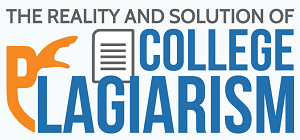Ethical Research
Need Help? Ask Us!
Need Help? Ask Us!
Chat with a Librarian
Chat with Us!
Text Us
Text (502) 799-4094 to get live help on your mobile phone (available during reference hours, Sunday 1:00pm-8:00pm and Monday-Thursday 11:00am-8:00pm)
Schedule an Appointment
Select a time to meet with a librarian for one-on-one research assistance with a member of our research team.
Call Us
Research Desk: (502) 863-8401
Circulation Desk: (502) 863-8400
Email Us
Email our Research Team with your question.
While many believe plagiarism is simply the copying of someone else’s work and passing it off as their own, as you will see, it goes beyond that. Not merely limited to another’s words, plagiarism covers the wrongful appropriation of other’s thoughts, ideas, and expressions without providing proper documentation and attribution to the original author. Considered academic dishonesty, plagiarism is not a crime in and of itself, but it is a violation of the Georgetown College Honor Code and can lead to harsh penalties, such as academic suspension and expulsion.
For more information on plagiarism, what constitutes it, how often it occurs, and more interesting facts, click the image to see the Plagiarism Infographic:
Beyond the academic dishonesty connected with plagiarism, there is another important reason to provide the proper attribution to sources that you consult. When you entered college, you became a de facto academic and a member of a community that speaks to one another through its scholarship. In order for others to follow your train of thought and your evidence to test you theories and arguments, it is imperative for you to provide proper citation to do so. Because, if you want to be taken seriously, as the video shows, you must know that Scholarship is a Conversation:



